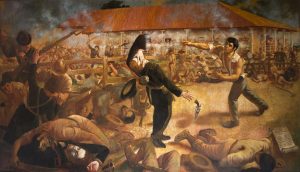
The Obits of William Walker, Filibustering President of Nicaragua
Born in 1824, Walker, who graduated summa cum laud at the age of fourteen from the University of Nashville, tried his hand at respectable professions such as medicine and law, but ended up as the embodiment of a mercenary movement to extend the realm of American empire south of the Mexican border.
Read More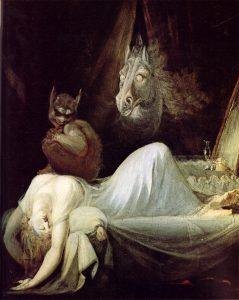
Did Gothic Romanticism Criticize the Early 19th Century World?
Although escapism was in fashion, there was one interesting subgenre of Romanticism where the development was a source of inspiration for the story usually set in the past. That subgenre is Dark or Gothic romanticism.
Read More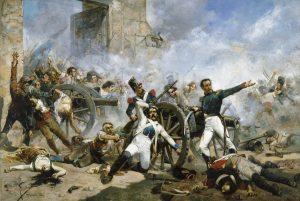
Conquer and Divide: The Spanish Resistance that Broke Napoleon’s Second Strategy
Although he was a brilliant military tactician, one of the ways Napoleon managed to hold on to conquered regions was by employing a strategy of carving up states based on historical precedent. The Rhodanic Republic (1802-1810), the Kingdom of Italy (1805-1814), and the Republic of Danzig (1807-1814) were among a few “sister republics” created by Napoleon. These client states, formed under the guise of revanchist history, aided the control of occupied lands in the First French Empire. When Napoleon invaded Spain in 1808, he set about to redraw its map in a similar fashion.
Read More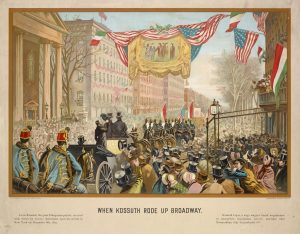
Antebellum Icon: Republicanism vs. Monarchy and Kossuth in America, 1851-1852
Although he was thronged by thousands of people in the principal cities of England, a key reason Hungarian nationalist and freedom fighter Lajos (Louis) Kossuth was so popular during his 1851-1852 visit to the United States was the American aversion to monarchy. Kossuth, the figurehead of the 1848 Hungarian Revolution to overthrow the Habsburg Dynasty’s grip on that nation, was welcomed by massive crowds eager to listen to his republican-inspired orations. The New York Times noted in late 1851 that the “reception of the illustrious Kossuth… was such a scene as the world seldom beholds.”
Read More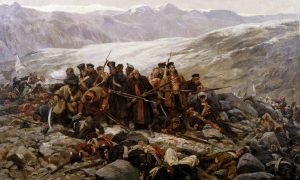
“Never really subdued nor reconciled to our rule”: The 1842 Retreat from Kabul
The massacre of Major General Sir William Elphinstone’s army and its auxiliaries in early 1842 while attempting to retreat from Kabul, Afghanistan, was a shock to British statesmen and the public. The expeditionary force, many of whom were sent there in 1839 to assert British control, was made up of roughly 700 British soldiers, 3,800 Indian troops, and 14,000 civilians and workers attached to lend it support. Lord Auckland, the Governor General of India, was so shocked upon learning of the disaster that he had a stroke.
Read More